Your solution maker
Expertise
“Our operational successes in managing people, workforce and technology make iKanbi your expert in customer relations.”
“We hire the best candidates to be the spokespeople for your brand”
(Katia, HR department)
The digitisation of customer services today entails a transformation of the roles within customer relations.
“We determine forecasts and assess your project’s requirements in terms of human resources for a better brand experience”
(Hilde, WFM).
Through performance indicators related to quality and customer satisfaction, we aim for operational efficiency.
Remote working is iKanbi’s agile response to our customers’ demand for flexible services and our employees’ expectations when it comes to health, safety and work-life balance.
You have discovered our expertise and would like to discuss it with one of our employees?
“We hire the best candidates to be the spokespeople for your brand” (Katia, HR department)
At iKanbi, we have developed a dynamic recruitment policy for our employees. We hire the best candidates who will become proud spokespeople for your brand. And because we firmly believe that talent is a combination of education and hard work, we encourage continuous professional training and personal development.
Our commitment: Investing in our employees
All new customer advisers are guided through our training processes to develop the knowledge and skills specific to their new role and the brand which they will represent.
We also provide virtual classes for continuous professional training with an assessment of the skills acquired on our LMS platform. In addition, we organise workshops during which experts share best practices.
Although investing in training our employees may seem energy-intensive, we believe that investing at an early stage is the best approach.
The development of professional, technical, relational and emotional knowledge and skills is proof of iKanbi’s trust in its employees. The learning-oriented culture at iKanbi results in greater customer and employee satisfaction, less reliance on corrective measures and lower attrition rates.
The digitisation of customer services today entails a transformation of the roles within customer relations.
When we look at consumer behaviour, we can see that consumers have developed new needs and new habits. To respond to this new context, iKanbi encourages its employees to become multi-skilled. Multi-skilling means that our employees develop their knowledge and skills not only in terms of their roles but also in terms of technical, relational and emotional know-how.
“With this new approach, we ensure the development of a sense of closeness between consumers and our employees, thereby creating extraordinary interpersonal relationships. For example, “Mr Smith” is no longer seen as an ordinary customer; instead, he is “Mr Smith from Oxford” and he is particularly positive about his interaction with “Christophe from iKanbi”, the spokesperson for your brand. At the end, Mr Smith thanked Christophe because he felt that he had been heard, his request was logged, his problem was solved. “There is nothing more satisfying for us than a “thank you” from your customers.”
“We determine forecasts and assess your project’s requirements in terms of human resources for a better brand experience” (Hilde, WFM).
Forecasting or how to anticipate events, rather than responding to them
One of the big questions when launching a project is: “What resources should be allocated?”
Predicted flows based on historical data, known events, specific circumstances and the forecasts which you share with us are all vital elements which will enable us to calculate the appropriate resources for your situation. With years of experience in this discipline, we know everything there is to know about calculating resources.
Having the right resources is a good start, but having the right resources at the right time is even better!
To ensure that accessibility and service level requirements are met, we calculate and plan the necessary resources on the basis of needs, skills, legal and individual constraints. Two tools are vital for us to do this: the workforce management tool and intraday management.
The workforce management tool: Erlang C, a flexible formula
The integration of forecast flows, adjusted for the past history of these same flows, is based on the Erlang C model. This Erlang C formula enables us to calculate the right resources, namely the number of customer advisers to be allocated per interval to meet your brand’s accessibility and service level requirements.
Intraday management or live forecasting
Planning and resource allocation are like a photograph: they cannot be changed after a given time. iKanbi’s strength lies in its continuous view of a succession of “live” situations which enables it to analyse results and take the appropriate corrective actions. Thanks to our intraday management, we continually improve your forecasting.
Through performance indicators related to quality and customer satisfaction, we aim for operational efficiency. The concepts of FTR (First Time Right), IR (Immediate Resolution) and FCR (First Call Resolution) are at the heart of our approach and our quality monitoring models.
A tangible example of quality monitoring is the quality monitoring sheet. This is based on the recommendations of the COPC (Customer Operations Performance Centre) standard, the reference for measuring the quality and the performance of customer contacts: the famous KPIs.
By means of various performance indicators linked to quality and customer satisfaction, we aim for operational efficiency, continuous performance improvement and customer satisfaction, along with the satisfaction of our customers’ end customers and our employees.
Semantic Voice Analysis or AI to improve the Voice of the Customer
In addition to performance indicators, our analysis also focuses on VOC (Voice of the Customer). Listening and analysis can be carried out in a traditional way through telephone surveys, satisfaction surveys, feedback from our customer advisers, messages posted on social media or on your brand’s website, etc. It can also be carried out using artificial intelligence (AI).
Remote working is iKanbi’s agile response to our customers’ demand for flexible services and our employees’ expectations when it comes to health, safety and work-life balance.
As a remote working pioneer within the call centre sector (2009), our readiness to increase our resources demonstrates our ability to anticipate and to react, both in terms of managing our customers’ services and in terms of our customer advisers’ expectations.
By its very nature, a contact centre must be flexible. Variations in volume and forecasting have an impact on the number of places required for resource deployment. In this way, staffing needs in a contact centre can vary, with up to four times more advisers required, depending on the time of day or the development of a crisis situation. What’s more, remote working has a very positive impact on our employees: time spent commuting is reduced which contributes to a better work-life balance.








